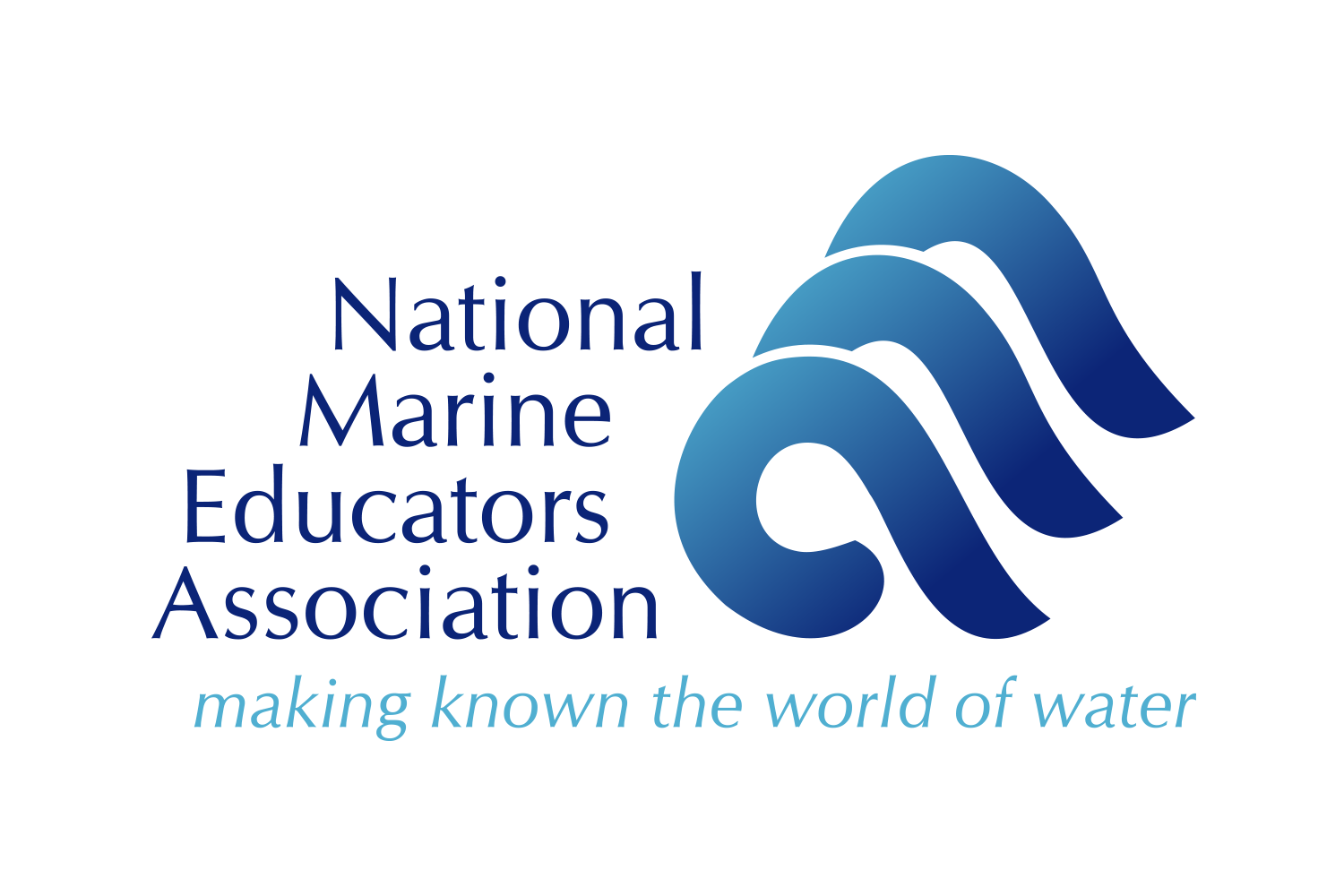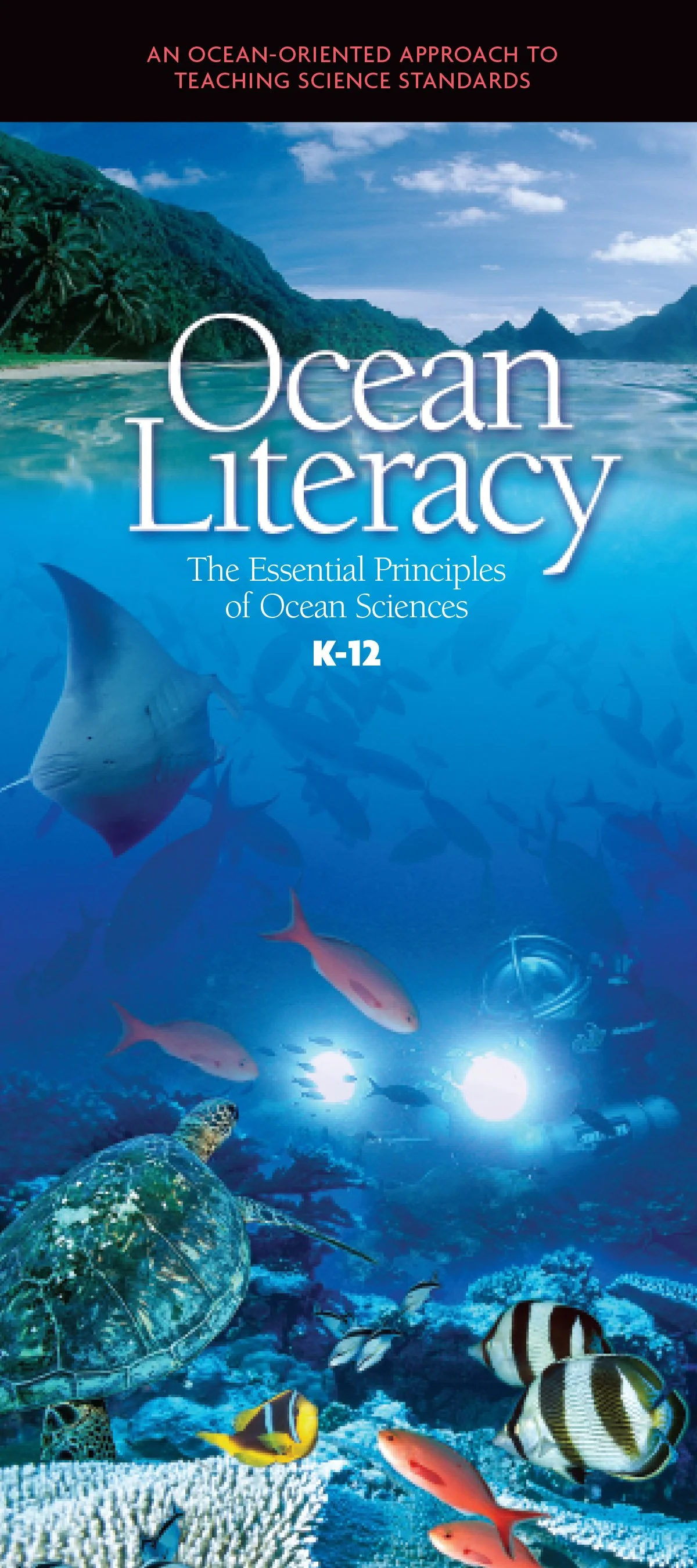Celebrating 20 Years of the Ocean Literacy Campaign
Did you know the Ocean Literacy Campaign just reached a major milestone? We’re celebrating its 20-year anniversary!
The global Ocean Literacy Campaign began with grassroots efforts in 2004–2005 to incorporate ocean concepts into the U.S. education system. A series of consensus-building meetings brought together scientists, educators, and policymakers and resulted in the first definition of ocean literacy and the creation of the seminal guide Ocean Literacy: The Essential Principles of Ocean Sciences K–12.
Reflections on the 20th Anniversary
By Sarah Schoedinger, adapted from remarks given at the 2025 NMEA Conference
Twenty years ago, at the 2005 NMEA conference in Maui, the very first Ocean Literacy Guide was shared with attendees. Hot off the presses, it represented a milestone in the collective effort among ocean scientists and educators to define the essential knowledge about the ocean. That initial guide provided a definition, seven essential principles, and 44 fundamental concepts—planting the seeds for what has grown into today’s robust framework of four components comprising the guide, a scope and sequence for grades K-12, the alignment to the Next Generation Science Standards, and the International Ocean Literacy Survey.
The 2005 conference was also pivotal for three other reasons:
The foundational document was shared with NMEA members, anticipating the development of new national science standards.
NMEA created a standing Committee on Ocean Literacy, replacing its ad hoc science standards committee.
The One Ocean Marine Forum was held, leading to the formation of the International Pacific Marine Educators Network (IPMEN) in 2007. IPMEN continues its mission “to build ocean literacy at every level of society in the Pacific region.”
Who knew that these events would launch a global movement—one in which NMEA continues to play an important role?
NMEA members helped shape the original guide and, as an organization, NMEA has since served as a backbone for maintaining and disseminating the Ocean Literacy Framework worldwide. The strength of the framework lies in its simplicity and in the consensus-building process that ensured the science concepts were sound, essential, and grade-appropriate. Hundreds of people have contributed to this effort—recognized on the Ocean Literacy Honor Roll.
While the guide has evolved—adding new components such as the scope and sequence, the NGSS alignment, and concepts like ocean acidification and anthropogenic climate change—its core content has remained remarkably stable. What began as a U.S.-based education initiative has since inspired translations, adaptations, and international collaborations far beyond what was imagined in 2005. Today, Ocean Literacy informs exhibits, curricula, and global policy conversations.
As Sarah reflected:
“Here’s to another 20 years of Ocean Literacy and NMEA’s continued leadership and support of its aims.”
A Movement with Global Impact
What started in the United States has grown into an international effort to ensure everyone—no matter where they live—has the opportunity to understand the ocean’s importance. The Ocean Literacy Guide has inspired similar frameworks in climate, energy, estuaries, the Great Lakes, and regional seas such as the Bay of Bengal and the Mediterranean. It has been translated into multiple languages and adapted for many cultures, making it a truly global resource.
The Ocean Literacy Framework has proven invaluable to anyone seeking to increase ocean literacy. It provides evidence-based tools to:
Support learners’ understanding of the ocean while expanding the reach of ocean literacy.
Integrate ocean concepts meaningfully into K–12 and post-secondary curricula.
Reinforce that you cannot be scientifically or environmentally literate without being ocean literate.
Defining Ocean Literacy
Ocean literacy is an understanding of the ocean’s influence on you—and your influence on the ocean.
An ocean-literate person:
Understands the Essential Principles and Fundamental Concepts about the ocean.
Can communicate about the ocean in a meaningful way.
Is able to make informed and responsible decisions about the ocean and its resources.
Looking Ahead
Twenty years in, the Ocean Literacy Campaign continues to shape education, inspire global collaboration, and highlight the ocean’s essential role in sustaining life on Earth. The movement has made ocean knowledge central to science education and has strengthened the call for stewardship of our shared blue planet.
You can explore the Ocean Literacy Framework and access all related resources through NMEA’s Ocean Literacy website.




